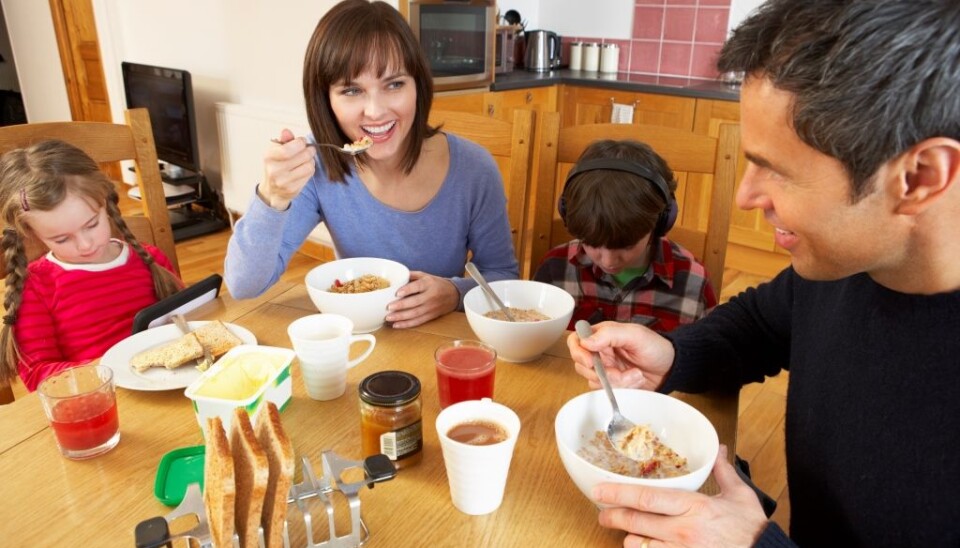
Kids can pay dearly for mum’s unhealthy diet
A mother’s diet during her pregnancy and the food a child eats during its first year seem to be linked to symptoms of aggression and depression.
Denne artikkelen er over ti år gammel og kan inneholde utdatert informasjon.
We all know "you are what you eat," but now it appears that this old aphorism holds true for diet and negative behaviour in children, according to a new study by Norwegian and Australian researchers.
“Young children who’ve been exposed to an unhealthy diet with excess sugars and fats have more behavioural problems and emotional symptoms, such as increased aggression, inattention and impulsiveness, than children who ate a healthier diet” says Eivind Ystrøm of the Norwegian Institute of Public Health (FHI).
“We’ve demonstrated a correlation at ages 18 months, three years and five years,” said Ystrøm, who is a researcher at the FHI’s mental health division.
This pioneering scientific report thus makes the link between behavioural and emotional disturbances and maternal and early post-natal nutrition.
Another reason for healthy eating
“Our discoveries provide yet another good reason for healthy eating. Sure, obesity is what first comes to mind when you think about dietary problems, but our study shows that there also many other consequences of eating unhealthy foods, or insufficient quantities of healthy foods,” says Ystrøm.
The new study was a collaboration between researchers from FHI and Deakin University and Melbourne University in Australia.
The study defined foods such as chocolate, pizza and waffles as unhealthy. Healthy foods included fish products, vegetables and sandwiches using cooked meat (cold cuts).
Depression and anxiety
The results indicate that children who eat unhealthily or who are not fed enough servings of nourishing food such as vegetables during their first five years are more likely than others to develop behavioural problems and symptoms of depression and anxiety.
The researchers used data from more than 23,000 women in the Norwegian Mother and Child Cohort Study.
They started by monitoring prenatal nutrition – the mothers’ diets during the 22nd week of pregnancy – and then investigated the children’s diets several times during the first years of their lives.
Information about symptoms of depression, anxiety and behavioural problems was provided by the mothers via questionnaires.
Multiple factors involved in mental health
The new study points to links, but can't prove that unhealthy diets are a direct cause of emotional and behavioural problems in children.
“It’s important to emphasise that a number of factors contribute to the mental health of a child. Unhealthy diets amount to one piece of the jig-saw puzzle,” says Ystrøm.
The Norwegians and Australians made adjustments for other variables to see if these undermined the correlation between foods and mental health problems.
For example, they also evaluated the mothers’ cooking abilities, socio-economic status, their methods of raising their children, the existence of siblings, marital status and maternal smoking.
But the link between unhealthy diets and behavioural problems and depression remained clear.
Seen in adults
Previous studies of adults have demonstrated the link between unhealthy eating and depression.
These findings in adults spurred the Norwegian-Australian research team to investigate whether a similar association could also be found in children.
Experiments on mice and rats have also shown a direct cause-and-effect relationship between unhealthy diets and anxiety.
-------------------------------------------------
Read the Norwegian version of this article at forskning.no
Translated by: Glenn Ostling






























